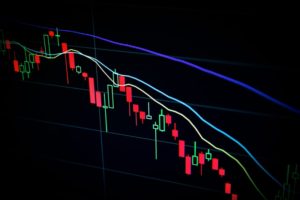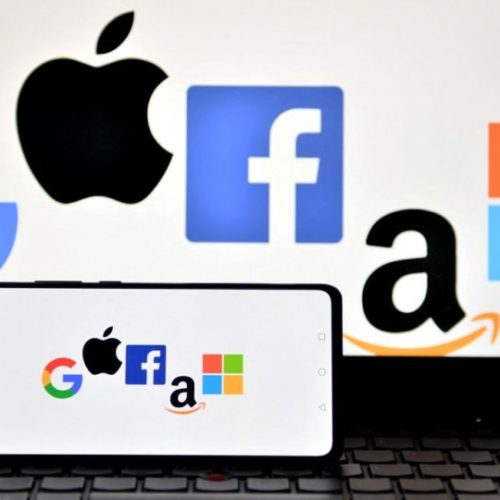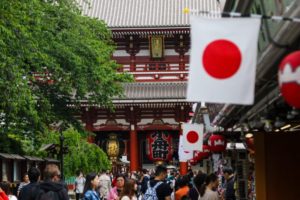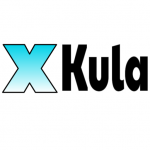Name of Big Tech: GAFA vs FAANG?
Google, Amazon, Facebook, and Apple are all companies that have had the most impact on the people of the world over the past decade. These companies are all internet, telecom, hardware, and cloud companies that have provided a series of services that are essential to many consumers. These companies are commonly referred to as “platformers,” symbolizing that the services they provide have become an infrastructure in our daily lives.
These companies were all founded in the United States but now aggressively expanding globally. Google, Amazon, Facebook, and Apple all have a branch located in Japan and they were all one of the earlier branches to be established outside of the United States. You can check the details for each company here. (Google, Amazon, Facebook, Apple)
In Japan, these “platformers” are called “GAFA”, taken from the initial letters of each company respectively. However, those who have lived in the states might have never heard of this term. In fact, in the United States, these companies are called Big Tech or FAANG (FANG). Why is it that Japan uses the term GAFA then? Why don’t they say FAANG of Big Tech? Well, there is a clear reason why Japan calls these companies GAFA.
Why is it called GAFA in Japan?
It all started with a book published by Scott Galloway, New York University professor of marketing at the Stern School of Business, called “The Four: The Hidden DNA of Amazon, Apple, Facebook, and Google”.

This book became a major hit in Japan in the year 2019 and received major book awards in the business category. The four in the book are referred to Google, Amazon, Facebook, and Apple. However, if you look at the image above, you can see that the book cover is in the order of Facebook, Google, Amazon, and Apple. This might be because Facebook starts with the word f, making it an obvious choice to bring it front. When you look at the Japanese version of the same book below, you can tell that it has a different title.

In the Japanese version of the book, the cover has the word GAFA on it. The word GAFA itself had been used before this book was published, but it was not a commonly used word even among businessmen. However, since this book became a best seller in Japan, it can be said that this book cemented the term “GAFA” to coin the four big tech companies in Japan.
GAFA or GAFAM? Do you add Microsoft?
In Japan, sometimes people like to add an M at the end of GAFA, making it GAFAM. Occasionally, you may stumble upon a GAFMA as well. The M here stands for Microsoft. Microsoft is considered a major powerhouse in the internet, cloud, and hardware industry, but has been around in the market a bit longer than Google, Amazon, Facebook, or Apple. (Apple is the exception of being founded only a year after Microsoft was founded in 1975.) For further details about Microsoft in Japan, please click the link here.
However, unlike these four, Microsoft was generally considered a “B to B company”. Meaning that it mainly sold products and goods to businesses, whereas Google or Amazon were mainly selling it to consumers. Therefore, Not having a major presence in the consumer-facing business, was not included in “GAFA”.
Also, these four companies are constantly accused of their abusive behavior in the market such as price manipulation, by leveraging their advantageous position of having a dominant share in the market. On the other hand, Microsoft already went through the phase of competing against the FTC (Federal Trade Commission), and since then has been under the radar in terms of monopolistic behaviors.
Basically, the only times when the word GAFAM is used is, when Microsoft makes a big move in the tech industry or perhaps in the job market for software engineers.
How about FAANG? Is it used in Japan?

In the United States, the big four tech giants are sometimes called FAANG or FANG. FAANG is taken from the initials of Facebook, Apple, Amazon, Netflix, and Google. Sometimes the A stands for just either Apple or Amazon. This term is mainly used in the stock market. In the past decade, all of these companies had massive spikes in their stock market valuation. Because of this, a convenient word was useful to explain the reasons why all of these tech companies had such massive growth spurts.
However, in Japan, the term FAANG or FANG is not commonly used, even among investors or finance-related personals. What do those people call it instead? Well, it’s GAFA. In Japan, GAFA is used to describe these tech giants in the stock market, job market, and in business in general.
Actually, France calls it GAFA as well.
What people might not know, is that Japan isn’t the only country that uses the term GAFA. There is one more country that uses this term extensively and that is France. When Google, Amazon, Facebook, and Apple are all expanding all over the world, why has this term stuck on in France. The main reason is taxation issues.
France24, a French state-owned international news television network based in Paris, even has a specific page called “GAFA tech Tax”, which archives all articles related to taxation towards these tech giants. (You can access the page by clicking here.) In 2019, the French government decided that it will enforce a flat 3% tax rate to
- Companies with digital revenues of more than €750 million worldwide and €25 million in France.
- Digital interface activities that connect customers and producers, retailers, or service providers, as well as advertising and the resale of personal data for advertising purposes.
(As written in the site here → https://www.jonesday.com/en/insights/2019/07/french-parliament-passes-gafa-tax)
This announcement is basically stating that the French companies think that the tech giants aren’t paying their fair shares in France and want to tax them. This has been an issue for a long time not only in France but globally because internet businesses can essentially operate anywhere in the world without physically having an actual operational base in a specific country. Therefore making it hard or nearly impossible to tax them, under current tax laws.
The French have been using the term “GAFA”, at least as old as 2012, but the origin is unclear. However, the recent rise in conversations involving the taxation towards these tech giants certainly contributed to the term to stick to the general public.












